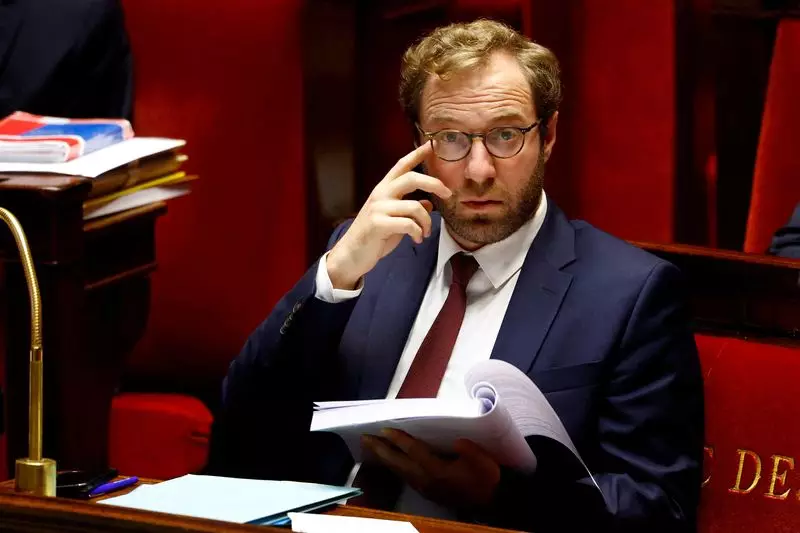The political climate in France has become increasingly precarious as the government grapples with a looming budget crisis. The statements made by Finance Minister Antoine Armand provide insights into the tense atmosphere characterized by resistance from both ends of the political spectrum. With the country’s fiscal health deteriorating, the financial implications for the state are severe. The combination of rampant budget deficits and potential governmental instability poses questions regarding France’s future economic policies.
This fiscal year, France’s budget deficit has escalated alarmingly, pushing the government into a corner while amplifying the risks linked to its sovereign bonds. Although the global ratings agency Standard & Poor’s has recently maintained the credit rating of Prime Minister Michel Barnier’s minority government, this validation feels like a temporary reprieve. Analysts are cautious; they anticipate that if the current trajectory isn’t altered, even this modest sense of security may prove to be fleeting.
The French government’s ambition to trim the budget deficit to 5% of economic output for the coming year appears increasingly unrealistic due to the sea of challenges it now faces. The urgent demands from Marine Le Pen’s National Rally (RN)—an influential player in the political landscape—act as an imperative for Barnier. The RN has made it clear that further concessions are necessary to give their backing, threatening a no-confidence vote that could destabilize Barnier’s governance if their demands—including pension adjustments and cuts to planned medication reimbursements—are ignored.
The Stakes of Political Ultimatums
The political tension is exacerbated by Le Pen’s ultimatum. The RN is insisting that if the government does not alter the proposed budget by Monday, they will not only withdraw their support but will also mobilize a no-confidence motion. This situation highlights a broader struggle for power within France, particularly as the government finds itself at the mercy of far-right demands. Armand’s reassurances of cooperation and willingness to negotiate indicate a recognition from the government that finding a middle ground is paramount to retaining its hold on power.
However, the question arises: how much compromise can the Barnier government realistically offer without jeopardizing its financial policies? Pushing through a budget-centric focus is indeed critical for the nation’s economic stability, yet pleasing the RN could lead to an unsustainable fiscal environment. The balance of political maneuvering and financial prudence is a tightrope that Barnier must navigate carefully.
As the political landscape morphs, the economic trajectory grows increasingly uncertain. The French treasury braces for a year where the prospect of maintaining a budget deficit at or below EU regulations seems dicey. Rising tension with the RN has directly contributed to spikes in the yields of French government bonds, instigating fears among investors and economists. With a significant increase in financing costs looming, the potential for a credit rating downgrade remains a palpable threat that could deepen the economic malaise.
Standard & Poor’s recent projections suggest the deficit may not even be brought down to the anticipated 5.3% next year. Coupled with the stark reality that the EU mandates budget deficits must not surpass 3% by 2029, the road ahead appears stricken with obstacles. Failure to meet these criteria could not only cement the current economic downturn but could also shift investor confidence away from French markets altogether.
France stands at a critical juncture. The balance between fulfilling the immediate demands of a far-right political party and maintaining a sustainable long-term fiscal policy is delicate. As tensions rise, the government’s ability to craft an effective budget while simultaneously quelling dissent presents a formidable challenge.
In essence, the future of France’s economic policy hangs in the balance. The upcoming days will undoubtedly hold pivotal moments that could shape the nation’s fiscal landscape. As Barnier’s government moves forward, careful negotiations and strategic decisions will dictate not just the future budget, but the broader economic foundation of France itself.

